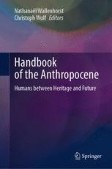Search
Search Results
-
Romantic Self-Transformation in Kierkegaard
Kierkegaard adapts conceptual resources from both early German Romanticism and Hegelianism. The adaptation in question triangulates these resources,...
-
Gardens of God: Spiritual Pragmatism and Transformation of Religion, Politics, Self and Society
Kingdom of God is a familiar and dominant discourse in religion, society and the world. It is also a dominant framing for thinking about a good...
-
Urban food governance without local food: missing links between Czech post-socialist cities and urban food alternatives
Food is becoming an increasingly important issue in the urban context. Urban food policies are a new phenomenon in Czechia, where urban food...

-
The Self-Knowledge of Not-Self: On the Problem of Modern Buddhism and the Basic Character of the Buddha’s Teaching
Contemporary proponents of modern Buddhism argue that the Buddha’s teaching, in contrast to later Buddhist-inspired philosophies and folklore, is of...
-
Authenticity as self-discovery and interpretation of value
This paper offers an alternate solution to the puzzle of transformative experience raised by Paul (2014), through an appeal to Arthur Schopenhauer’s...
-
The Senses of Performance and the Performance of the Senses: The Case of the Dharmabhāṇaka’s Body
In the “Chapter on the Benefits to the Performer of the Dharma” ( dharmabhāṇakānuśaṁsāparivartaḥ ) in the Saddharmapuṇḍ arīka ( Lotus Sūtra ), the Buddha...
-
From Profit to Purpose: The Distinctive Proposition of the Economy of Communion Approach
In this essay, we highlight 7 distinctives of EoC businesses which set them apart even from other humanistic approaches to management. Not that EoC’s...
-
“Ruptured selves: moral injury and wounded identity”
Moral injury is the trauma caused by violations of deeply held values and beliefs. This paper draws on relational philosophical anthropologies to...
-
**ong Shili, Kiyozawa Manshi, and the Logic of Transformation
This paper offers a comparative-philosophical examination of how the early 20 th -century Chinese philosopher **ong Shili (1885–1968) and late 19 th -cent...
-
When Pain Becomes an Expression of Love: a Phenomenological Analysis of Self-inflicted Pain Among Christian Monastic Ascetics in Central Medieval Europe
This paper shows how self-inflicted pain enabled the expression of love for God among Christian monastic flagellant ascetics in medieval central...
-
Virtue ethics and moral foundation theory applied to business ethics education
This research describes and empirically evaluates the application of a business ethics pedagogy informed by neuroscience and evolutionary biology...

-
Divine Revelation and Justification of Belief in God: a Comparative Study of the Views of Paul Moser and Mulla Sadra
The present article analyzes and compares the idea of divine revelation to justify religious beliefs from the viewpoints of Paul Moser and Mulla...
-
Man—Towards Its Self-Transcendence—In the Light of Sri Aurobindo
The chief aim and duty of the human spirit, as Sri Aurobindo observed, are respect, service and progress of human beings. The religion of humanity is...
-
Virtue Ethics
Virtue ethics, which is concerned with the set of representations, emotions and ways of being that drive us to act individually and collectively, is...
-
The Significance of John Hick’s Soteriological and Ethical Criteria for a Religiously Pluralistic Nigeria
John Hick’s pluralistic hypothesis is an attempt to reconcile the divergent conceptions of the ultimate Real in the post-axial religions. However,...
-
Conclusion: The Ethics of an Intellectual—Detaching Oneself and Dissipating Admitted Familiarities
The book developed on the transformation that occurred in Foucault’s own thought, mainly in relation to his way of understanding the truth: the path...
-
Tawhidi Law and Certainty in the Universe
Specifically important characteristics and properties of the evolutionary learning processes along the conscious continuum of the Tawhidi...
-
Creativity and modelling the measurement process of the Higgs self-coupling at the LHC and HL-LHC
This paper provides an account of the nature of creativity in high-energy physics experiments through an integrated historical and philosophical...

-
Creativity
There is a parallel to be drawn between the authentic road to self-development which evolves into social interaction with others, and creativity as...
-
Lone-Transformation and Intergrowth: Philosophy and Self-Justification in Guo **ang’s Commentary on the Zhuangzi
Traditionally attributed to Guo **ang, the Commentary on the Zhuangzi captures the ethos of depravity and opportunism during the Wei-** period....
